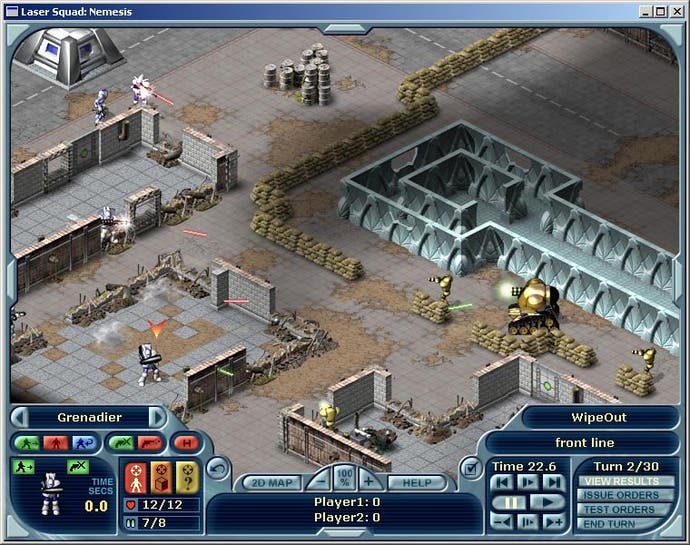The Story of X-Com
From the school playground to Laser Squad Nemesis in the words of Julian Gollop.
Microprose was taken over by Spectrum Holobyte, and they in turn were being taken over by Hasbro Interactive. At the time, Virgin was the premiere European publisher, and because of Westwood and Command & Conquer, they were doing pretty well. In the end we went with Virgin.
There was some dispute about who owned the licence. In those days, companies weren't terribly good about intellectual property protection. Our lawyers said that if it went to a court battle, we'd probably lose, and have to hand over the X-Com name. But strangely, their lawyers were telling them the same thing! We eventually struck a deal that we would get increased royalty rates for X-Com Apocalypse, and they would take the licence. And then, of course, Microprose took it in a slightly different direction.
Yes, the space-combat one. And they started work on X-Com Alliance, an Unreal Engine game. I remember seeing it at E3 in 1999. They had a really big display, with dwarves dressed as aliens wandering around and glass tubes full of alien foetuses.
It was basically a tactical shooter. You had a squad of four guys, you directly controlled one of them, and I was shocked. It was an FPS. It didn't bode well basically... It was very buggy, and poorly done. It had the other elements of X-Com – research and base-building – but it looked like an FPS to me. They spent quite a lot of money on it, but it was canned.
They also started work on something called X-Com Genesis, over in the original Microprose offices in Chapell Hill, North Carolina, but that was canned as well. It was supposed to be a remake of the original, but they closed down the studio.

Yes. First we made Magic and Mayhem for Virgin interactive, but things went bad. We'd just proposed Dreamland Chronicles, which was a faithful reworking of the original X-Com. It was a turn-based game, with a focus on research, though the setting was different as the aliens had already invaded the earth. It had proper 3D graphics and we were using a very early version of Havok.
We were doing it for PS2 as well as PC, and it was an interesting game because it had a third-person view but went into first-person for the shooting mode. It was still turn-based, action-point based. Last year when I played Valkyria Chronicles on the PS3, I was stunned – it was almost exactly the same as Dreamland Chronicles! It even had a little bar for your action points.
However, Virgin were sold to Interplay, who were then sold to Titus Interactive. Titus were only interested in plunder, particularly Interplay's assets and IP. They weren't interested in our game at all and simply stopped funding us. And because we had an exclusive four-game deal with Virgin, we had to liquidate Mythos. It was a tragedy.
We were left without our development team, which was shame because by that point we'd managed to recruit some really good guys. One of whom went on to be the lead programmer for Heavenly Sword; one is now Audio Manager at their Cambridge studios. One went on to be a producer at Climax. We went back to a very small team again – me, Nick, and one other guy – and back to experimental games like Laser Squad Nemesis.
Julian now develops for Ubisoft. His current project is Ghost Recon: Shadow Wars, a squad-level turn-based tactical game, and launch-title for the Nintendo 3DS.
The X-Com licence was acquired by Firaxis in 2005, and now lies with take Two Interactive. 2K Marin, owned by Take Two, is currently working on the 50's-themed franchise reboot, XCOM.